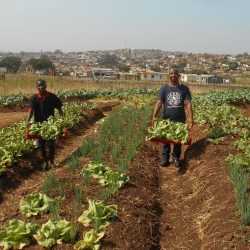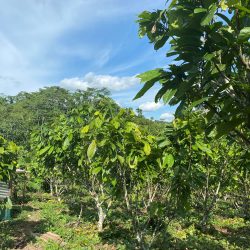MINSK, Belarus – In a significant push to unlock Ghana’s vast, yet largely untapped, agricultural potential, Belarus has formally offered its expertise and modern solutions to boost the West African nation’s farming sector. The overture came during a high-level meeting in Minsk yesterday, where Belarusian Deputy Prime Minister Viktor Karankevich hosted a Ghanaian delegation led by Minister for Food and Agriculture, Eric Opoku.
The core of the discussions revolved around addressing the critical shortfall in mechanisation within Ghana’s agricultural landscape, a factor both parties acknowledged as severely hindering productivity. According to the Belarusian Industry Ministry, the low level of mechanisation has left Ghana’s agrarian sector significantly underperforming, despite its inherent promise.
In a move that could redefine Ghana’s agricultural future, Belarus positioned itself as a “reliable partner and contractor” for the implementation of projects aimed at modernising Ghanaian farming practices. “Belarus is ready to help Ghana with the introduction of modern solutions in the agricultural sector,” Deputy Prime Minister Karankevich stated, signalling Minsk’s keen interest in long-term collaboration.
Particular focus was given to the supply of crucial farming machinery. The shopping list of potential imports includes a range of equipment vital for improving efficiency, such as tractors, trailed and mounted implements for soil preparation, and cutting-edge harvesting equipment. Such an influx of technology could dramatically transform traditional farming methods in Ghana, promising increased yields and reduced manual labour.
Industry Minister Aleksandr Yefimov further underscored Belarus’s credentials, highlighting the extensive experience of enterprises under the Industry Ministry in producing “high-tech machinery that can significantly increase productivity and reduce the risks associated with climatic conditions.” This emphasis on climate resilience is particularly pertinent for Ghana, which often grapples with unpredictable weather patterns impacting crop yields.
Should these discussions translate into concrete agreements, it could mark a pivotal moment for Ghana’s food security and economic development. The proposed partnership offers a direct pathway to overcoming the technological deficit in its agricultural sector, potentially paving the way for a more efficient, productive, and resilient farming future.




